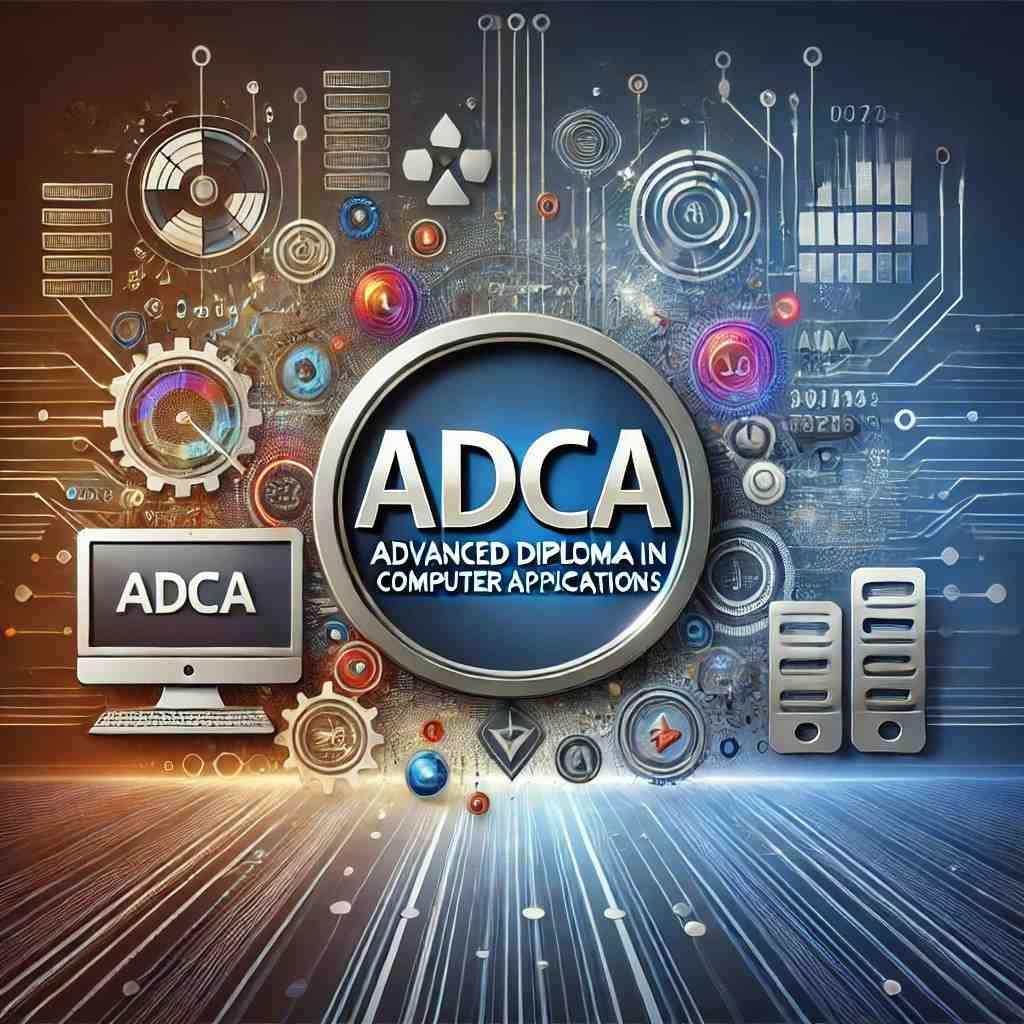Unlocking IT Opportunities with ADCA

In today’s tech-savvy world, opportunities in Information Technology (IT) are expanding like never before. But how do you stand out in this fast-paced domain? The answer could be simpler than you think. Advanced Diploma in Computer Applications, or ADCA, is a stepping stone that’s helping countless individuals find their footing in IT. And the best part? It’s not just for tech enthusiasts. This program caters to anyone eager to blend practical skills with theoretical knowledge.
Let’s dive into how ADCA opens doors to IT careers while ensuring you’re armed with the right skills.
What Makes ADCA So Special?
Imagine this: you’re navigating a maze of tech courses, unsure which path leads to real-world success. The ADCA full form, Advanced Diploma in Computer Applications, simplifies this decision. This course isn’t about learning one thing in isolation. It’s a blend of programming, data handling, and digital communication. Think of it as a Swiss Army knife for IT skills.
Unlike traditional degree programs that might drag on for years, ADCA compresses key learning into a manageable time frame. Whether it’s database management, Tally, or essential programming languages like Python, this diploma covers it all. It’s like getting a fast pass to the tech world.
Why ADCA? The Real-World Connection
Let’s face it. Employers today value practical knowledge over textbook theories. Completing an ADCA doesn’t just make your resume look good; it equips you with tools you’ll actually use. Consider the case of Ravi, a graduate who transitioned from an administrative role to IT support in six months. His secret? The Advanced Diploma in Computer Applications. He learned the ropes of MS Office, basic coding, and database systems—all of which he uses daily in his new job.
ADCA isn’t just for the young and ambitious. Housewives, retirees, and even professionals looking to pivot their careers can benefit. It’s accessible, flexible, and relevant.
What Does an ADCA Curriculum Look Like?
You might be wondering, What will I actually learn in an ADCA course?
Here’s a snapshot:
-
Programming Basics: Languages like C, Java, or Python.
-
Office Automation: Mastering MS Word, Excel, and PowerPoint.
-
Accounting Software: Introduction to Tally.
-
Database Management: Understanding SQL and data organization.
-
Web Design: Basic HTML, CSS, and JavaScript.
Each module is designed to be bite-sized yet impactful. No fluff. Just the essentials.
Who Should Consider ADCA?
Picture this: You’re at a crossroads, deciding what’s next for your career. An Advanced Diploma in Computer Applications might be the answer if:
-
You’re a student wanting to supplement your degree.
-
A working professional seeking to upskill.
-
Someone aiming to re-enter the workforce after a break.
-
Simply curious about IT but don’t know where to begin.
The beauty of ADCA lies in its accessibility. There’s no need to have a technical background. Even if you’ve never written a line of code, this course takes you from zero to confident.
The Career Edge with ADCA
Here’s the exciting part. Completing an ADCA doesn’t just add a line to your CV. It expands your career horizons. You could step into roles like:
-
IT Support Technician
-
Data Entry Operator
-
Web Developer (Junior Level)
-
Computer Operator
-
Digital Marketing Assistant
And the possibilities? Endless. The IT industry is vast and ever-evolving. With foundational knowledge from an Advanced Diploma in Computer Applications, you’re better equipped to seize opportunities. It’s not just about landing a job. It’s about staying relevant in an age dominated by technology.
How ADCA Stands Out
Unlike generic short-term courses, the ADCA full form encapsulates a holistic approach to IT. Here’s how:
-
Comprehensive Yet Compact: Covers a broad range of topics without overwhelming you.
-
Industry-Ready Skills: Focuses on what’s in demand.
-
Affordability: Quality education without breaking the bank.
-
Global Relevance: Skills taught in ADCA have universal application.
It’s no wonder ADCA is becoming a popular choice for IT aspirants.
Real-Life Scenarios
Still unsure? Let’s paint a picture. Imagine Neha, a fresh college graduate unsure of her career path. She enrolls in ADCA, learning tools like Excel and SQL. Six months later, she’s working as a data analyst for a startup. Or Raj, a small business owner, who took the course to manage his accounts more efficiently. His takeaway? The Tally software training helped him streamline finances, saving both time and money.
Stories like these are why ADCA continues to shine.
Final Thoughts
Whether you’re just starting out or looking for a career shift, ADCA offers a practical and efficient way to enter the IT industry. It’s not about becoming the next tech mogul overnight. It’s about taking that first step confidently. Because sometimes, that’s all you need to change everything.
FAQs About ADCA Full Form and More
1. What is the full form of ADCA?
ADCA full form stands for Advanced Diploma in Computer Applications. It’s a diploma course aimed at equipping students with essential IT skills.
2. How long does it take to complete an ADCA course?
Most ADCA programs are designed to be completed within 6 to 12 months, depending on the institution.
3. What are the prerequisites for enrolling in ADCA?
There are no strict prerequisites. Basic computer knowledge can be helpful but isn’t mandatory.
4. Is ADCA useful for career advancement?
Absolutely. An Advanced Diploma in Computer Applications enhances your IT skills, making you more employable in various tech and non-tech roles.
5. Can I do ADCA online?
Yes, many institutions offer online ADCA courses, providing flexibility to learn from anywhere.
- Art
- Causes
- Crafts
- Dance
- Drinks
- Film
- Fitness
- Food
- Jocuri
- Gardening
- Health
- Home
- Literature
- Music
- Networking
- Alte
- Party
- Religion
- Shopping
- Sports
- Theater
- Wellness


